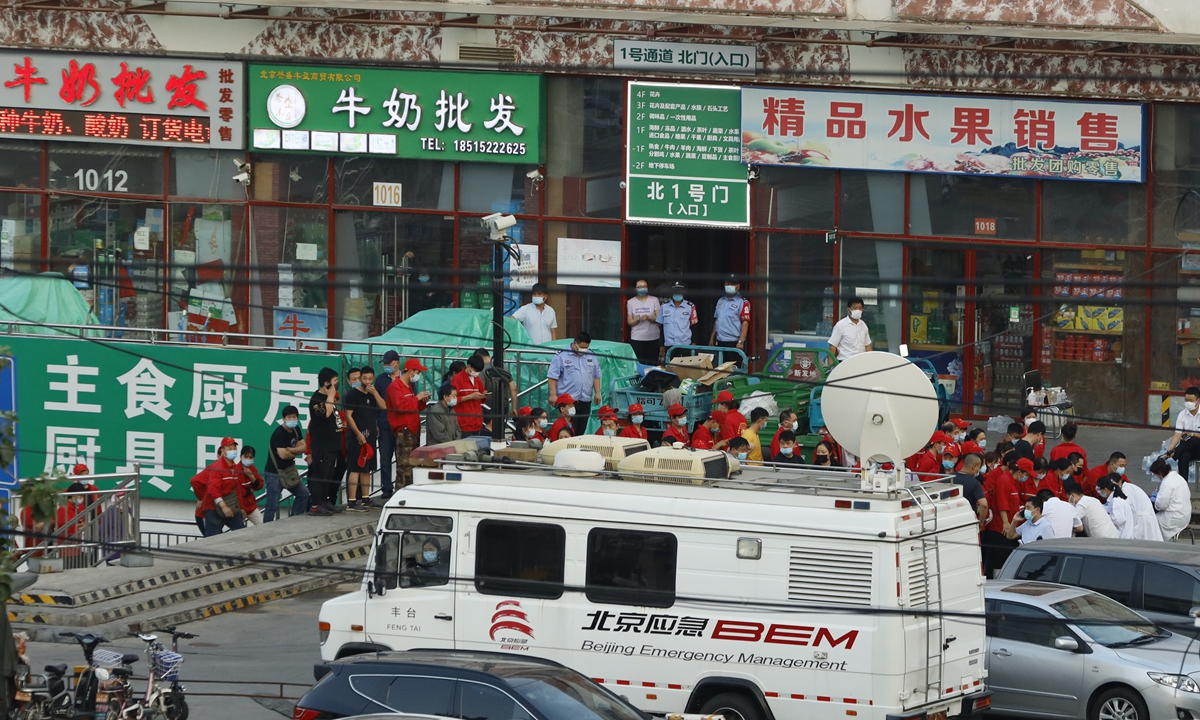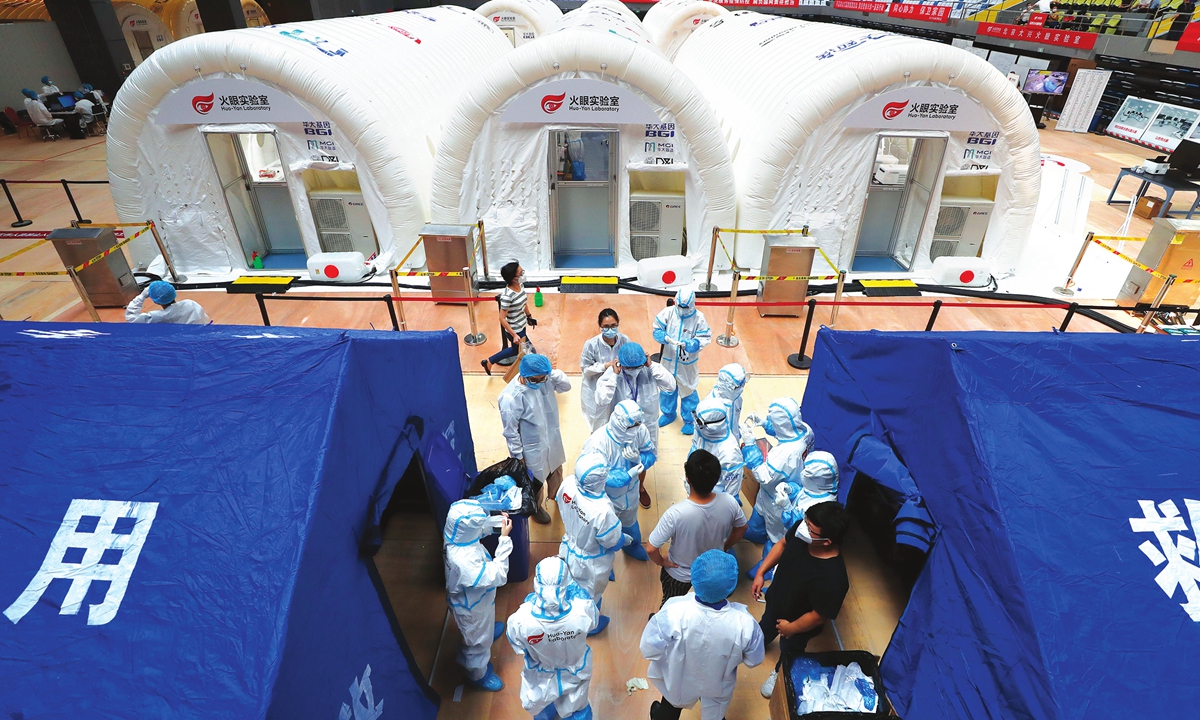Fear of community transmission rises in Beijing
By Liu Caiyu Source:Global Times Published: 2020/6/23 19:53:41

Dealers at the Xinfadi market have their information registered on Friday. Beijing authorities shut down the market after new COVID-19 cases linked the market. Photo: Li Hao/GT
After COVID-19 patients having no relationship to the Xinfadi market were detected in Beijing, fear of community transmission has been rising in the city, even though health experts believe the latest outbreak has reached a plateau.
Beijing health authorities reported 13 newly confirmed cases, along with two suspected cases and one asymptomatic infection on Monday, a slight rise compared with the previous day's nine cases.
But information released by the health authorities showed that several patients neither had a direct contact history with the Xinfadi market nor were they close contacts of confirmed cases, according to epidemiological investigations.
This lack of clarity sparked public concern that transmission may have started among local communities.
In the past few days, infections with a direct relation to Xinfadi began to decline while the number of indirect contacts has increased. Some small-scale infection clusters have also occurred at restaurants, food producing company PepsiCo, construction sites.
These cases, which can't clearly be traced to a specific source, increased the risk of further spread of the virus, said Wang Guangfa, a respiratory expert at Peking University First Hospital.
"We should prioritize epidemiological investigation on cases outside the infection chain relating to the Xinfadi market, to prevent missed cases. But many patients display minor or no symptoms, making it difficult to identify them," Wang told the Global Times on Tuesday.
"If we fail to track down potential infections, community transmission risks will rise," Wang said.
But Wang Peiyu, a deputy head of Peking University's School of Public Health, told the Global Times on Tuesday that transmission at the community level is so far very low in Beijing.
Beijing senior officials said during a Monday government conference that "the capital's epidemic prevention and control situation is still serious and complicated," urging related departments and officials not to be slack in work.

Lab staff prepare before entering Beijing's first membrane "Fire Eye" lab for nucleic acid tests, which entered operations on Tuesday. Nine 3.5-meter tall membrane cabins, with 14 automated nucleic acid extraction machines, can collect samples of 30,000 people a day. Photo: cnsphoto
The capital city has expanded testing scope to cover people work in markets, catering, delivery, logistics industries, medical staff, and other service providers such as supermarket workers and bank clerks. People about to finish medical observation will take a second nucleic acid test, city authorities said on Tuesday.
So far, more than 2.34 million residents have been tested. Testing institutes have increased to 128.
The Beijing outbreak has spread to six other provinces and regions. To curb the virus from spreading further, the Ministry of Transport on Tuesday vowed to strictly regulate outbound traffic from Beijing - those whose health QR codes are abnormal or who don't have negative nucleic acid tests within seven days are not allowed to take public transportation.
Posted in: SOCIETY,FOCUS